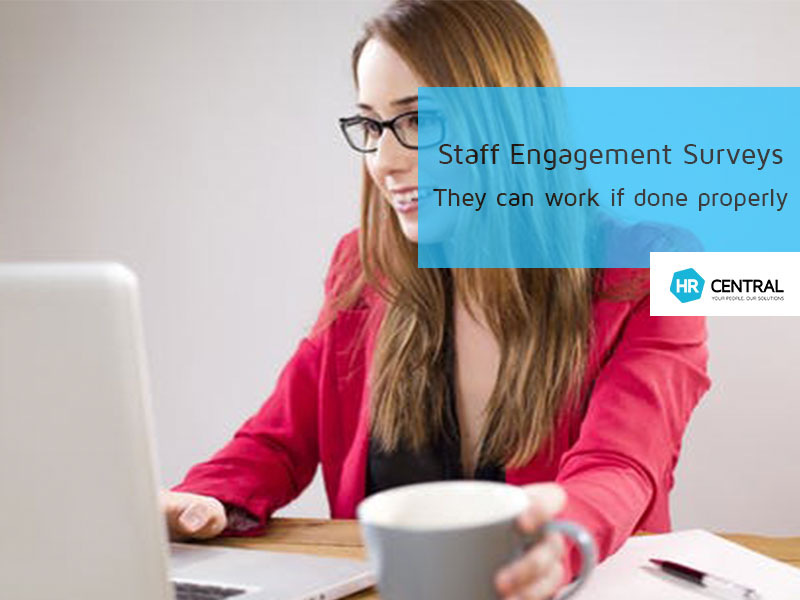Is your business in a ‘survey slump’? Over the years I have worked with many organisations that use annual employee engagement surveys. They send out the survey every year without thinking about why they are doing it, and they aren’t using the valuable data they are capturing in a meaningful or useful way. There’s no point asking your employees how happy they are on a scale of 1-10 if you’re not going to act on what they tell you!
The purpose of an employee engagement survey should be to establish how emotionally invested or committed an employee is to your business and its goals. Popular topics for feedback include remuneration and benefits, recognition, training and development opportunities, leadership, job roles and working environment.
If you are prepared to invest time and thought into the process, there are many benefits to conducting an employee engagement survey:
- They can measure employee engagement across a business providing useful insights into different groups or departments that may be performing exceptionally well or appear unsettled. It can also be a great way to monitor employee attitudes during times of change or significant projects.
- They provide employees with an opportunity to express their opinion. Studies have shown that employees who feel that their voice matters have more trust in their employer and are more productive and engaged, so the very act of seeking their opinion may have the desired effect!
- The data gathered from an employee engagement survey can be used to plan for organisational growth – to shape job roles, assist in developing training etc
- If done regularly the results can be benchmarked – offering a record for your own business but also as a comparison to your competitors
If your business is thinking about conducting a survey or overhauling its existing one, there are some key things to keep in mind:
Have some objectives
What do you want to achieve? Is there a lot of noise around a particular area of the business? Are people leaving a particular department for no apparent reason? Are employees unenthusiastic about your training offerings? Think about what you would like to learn about your business and go from there.
Involve senior leadership in the discussion so they are invested in the data and more importantly the next steps.
Be prepared to act
In my experience nothing frustrates employees more than being asked to complete an employee engagement survey if afterwards no action is taken. It’s very important that employees receive feedback on the outcomes of the survey and what the next steps will be. If employees feel that their feedback has been taken on board they are far more likely to contribute again next time. If your organisation is not taking action, explain why.
Communication is key
How are you going to communicate the purpose of your employee engagement survey to encourage your team to participate? How will you report back to them after the survey is completed? Will you involve them in the next steps? These are some of the questions that need to be considered before you start
Designing your survey
Setting up a survey has never been easier with online tools such as Survey Monkey. The time- consuming part is drafting questions. By including open ended and closed questions you can gather both qualitative and quantitive data.
Confidentiality is an important consideration. Anonymity is standard for these types of surveys however many employees may have concerns about how the data will be used and whether anonymity can be maintained. Think carefully about what identifiers you use. In small departments for example, identifying yourself by job role or gender may too easily identify the person.
If an employee has faith in the survey process they will be far more inclined to provide honest and frank answers – and that information is valuable.
HR Central have experienced HR Specialists who can develop employee engagement surveys for your business. For assistance contact us on 1300 717 721

